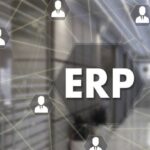I have spent the last 22 years of my life getting to know and supporting the careers and development of the teams that deliver enterprise applications across the Fortune 1000 in North America. I am an avid reader of books, articles, white papers, blogs, even press releases. While there are plenty of articles focused on interviewing technology leaders on the trends and the latest technologies’ impact on their industry and their company, usually underwritten by a product manufacturer or a software company, I have not seen a serious attempt to categorize and lay out what it takes to be a successful CIO. For my own interest and the interests of the next generation of technology professionals, I’ve set out to interview and garner insights from some of the most tenured CIO’s at America’s largest and well-known companies to understand the secrets to their success and their staying power. My goal is to understand what skills and attributes have enabled them to not only be successful as CIO of one company but be selected by more than one company as their technology leaders and hold those positions for well above the reported industry average of approximately 4.5 years.
Enter Dean Meyer, CIO of Chemours. If you have used air conditioning in buildings, homes, or cars or have ever enjoyed the benefits of a non-stick pan with your morning eggs, you probably are the beneficiary of Chemours products. I have had the pleasure to work with Dean over a period of 15 years and he was gracious enough to set aside time for a conversation.
KS: Dean, 13 years as a CIO of two industry giants, what does it take and what skills are you still trying to develop?
Dean Meyer: The skills that got me to CIO won’t keep me here. Technology becomes more integrated with business planning every day. When I started, we were focused on leveraging packaged software to move from custom mainframe applications that were built in-house over a period of decades. The move to ERP created value in the systems which lead to data process improvement, better documentation, process re-design, and enabled us to make better decisions. I believe my background in finance and accounting and strong math skills allowed me to connect with key leaders to communicate the value changes in technology were driving for the business. Speaking and communicating ideas at all levels with appropriate amounts of detail is the key skill that I developed and one that I am always striving to improve.
“Speaking and communicating ideas at all levels with appropriate amounts of detail is the key skill that I developed and am always striving to improve.” – Dean Meyer
KS: You have experienced very low turnover on your teams for more than a decade when other companies are seeing IT staff with an average tenure of 30-36 months. To what do you attribute this?
Dean Meyer: The key to keeping the best people is to let the teams run themselves. As a leader, you create the vision and make sure the teams see themselves as part of the vision. Respect and communication. You must be open and direct in communication, and you have to respect your team and be ready to explain the “why”.
KS: What positive impact have Millennials and Gen Z had on your work force?
Dean Meyer: The newer generations, whatever you like to call them, were born into a world of technology and have great comfort with it. They have a great curiosity, limited barriers to change, and an ability to visualize, create, and implement new systems and solutions. They often can’t understand why it takes so long to make changes that make sense to everyone in the organization. We have even had summer interns define a problem, create a solution, and deploy it before heading back to college in the fall.
What I have seen from the newer generations is a focus on upward movement, career development, and skill development. I am excited to see the impact their energy will have on our organization.
KS: How had COVID affected Chemours?
Dean Meyer: When I started at Chemours, we were 100% on-prem, now we are 80% in the cloud. With COVID, we increased remote access by 7X overnight with no issues. That’s a credit to our leadership for supporting the changes we needed to make more than 5 years ago.
KS: In what areas of your business would you most like to see technology-driven change?
Dean Meyer: The biggest gap I see isn’t the technology. Most of the problems we face today are self-inflicted. The technology we need already exists. The ability to leverage that technology to derive business and customer value is slowed by internal mechanisms.
KS: So if the skills and experience of the past won’t keep you in the CIO seat, what will?
Dean Meyer: Vision and execution. IT can change the value proposition for every business if they are focused on the right things. Cost and stability are starting points. We can speed up R&D through molecular predictive analytics to create new blends, we can use sensor data (IoT) and customer feedback capture tools to get closer to our customers, and we can create innovative collaboration tools that enable us to move from being a producer and seller of products to a co-innovator working hand in hand as our customers’ needs change. Instead of looking for markets for our products, we are going to be developing products for our markets.
Keith Sims is President/Founder of Integrity Resource Management, with over 20 years of experience identifying and mentoring the next generation Enterprise Applications Leaders.













